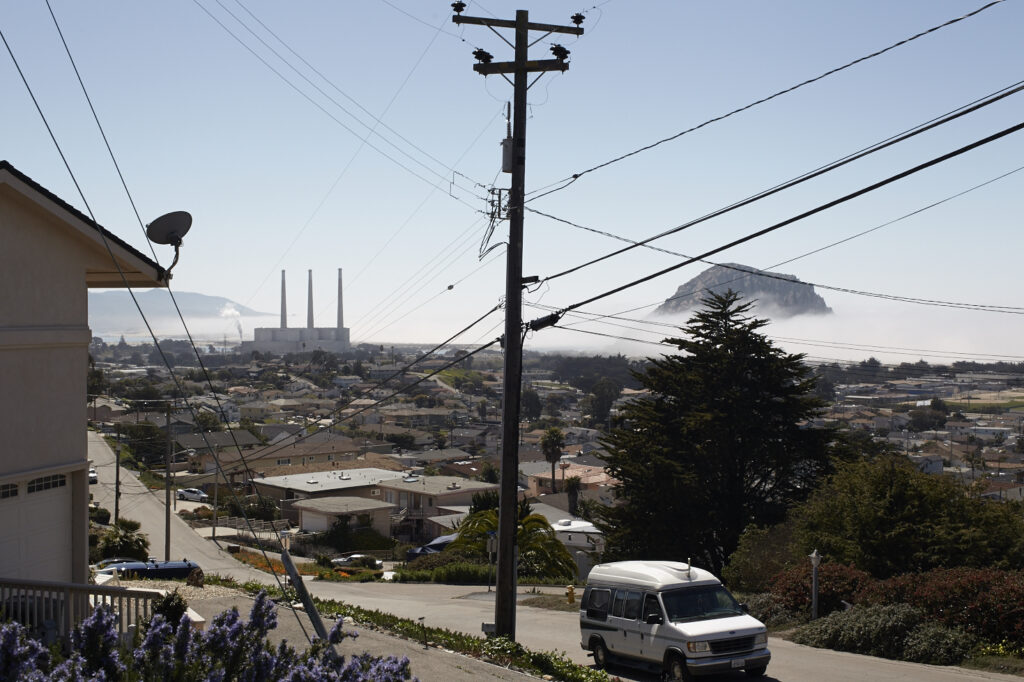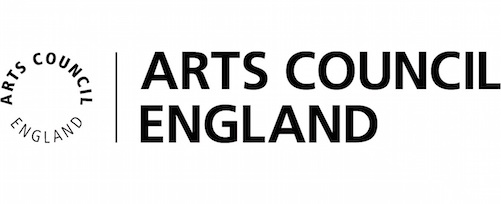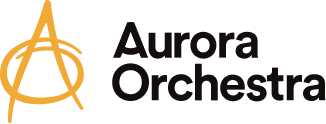Digital Programme: American Rhapsody
Wed 3 May 7.30pm, Southbank Centre’s Queen Elizabeth Hall

Welcome to Aurora’s final concert of the 2022/23 season at the Southbank Centre. Tonight we’re crossing the Atlantic and diving into the sounds of 20th and 21st-century America.
Programme
Caroline Shaw Valencia
Charles Ives Three Places in New England
1. The ‘St. Gaudens’ in Boston Common
2. Putnam’s Camp, Redding, Connecticut
3. The Housatonic at Stockbridge
George Gershwin Rhapsody in Blue
– Interval –
Appalachian Spring, original version for 13 instruments
1. Very slowly
2. Allegro
3. Moderato
4. Quite fast
5. Allegro subito
6. Very slow
7. Doppio movimento
8. Moderato
Leonard Bernstein Symphonic Dances from West Side Story
1. Prologue (Allegro moderato)
2. Somewhere (Adagio)
3. Scherzo (Vivace e leggiero)
4. Mambo (Meno Presto)
5. Cha-Cha (Andantino con grazia)
6. Meeting Scene (Meno mosso)
7. Cool Fugue (Allegretto)
8. Rumble (Molto allegro)
9. Finale (Adagio)
Programme notes
Composed in 2012, Caroline Shaw’s Valencia for string quartet explores the ‘exquisite construction’ of an ordinary orange. This single-movement work is, in the composer’s words, ‘an untethered embrace of the architecture of the common Valencia orange, through billowing harmonics and somewhat viscous chords and melodies. It is also a kind of celebration of awareness of the natural, unadorned food that is still available to us.’
A colourful, dreamlike evocation of scene and sensibility, Ives’ Three Places in New England offers a series of snapshots of American life and history through sound. The main body of Ives’ work was composed in 1911-1914, but its earliest sketches date from 1903 and Ives later re-orchestrated the work in 1929 for its premiere in New York.
The stately first movement – ‘The “Saint Gaudens” in Boston Common’ – is named after a bas-relief found on the common created by sculptor Augustus Saint-Gaudens. The relief depicts the 54th Massachusetts Volunteer Infantry – the first African-American unit of soldiers to fight in the Civil War – and Ives’ work duly conveys the slow, brave plod to battle and the ensuing bloodshed.
‘Putnam’s Camp, Redding, Connecticut’ assumes a more playful tone. Recalling childhood memories of rival marching bands processing through town streets and the joyful bombast of 4th July festivities, the movement charts the resulting sonic collision, splicing ‘Battle Cry of Freedom’, ‘Yankee Doodle’ and ‘The Star-Spangled Banner’ among other melodies.
‘The Housatonic at Stockbridge’ was inspired by a walk the composer took with his wife on their honeymoon and conjures the drift of afternoon mist and the soft flow of the river. The movement draws on a single hymn tune, ‘Dorrance’, that is stretched, transposed and fragmented.
Gershwin’s iconic Rhapsody in Blue sought to capture something of America’s ‘vast melting pot, of our unduplicated national pep, of our blues, our metropolitan madness’. The piece was commissioned by the bandleader Paul Whiteman for his own ensemble in 1924 and premiered at New York’s Aeolian Hall in a concert offering an ‘Experiment in Modern Music’. Two years later, the band’s pianist and arranger Ferde Grofé re-scored the piece for standard symphonic orchestra (the version now customarily performed) but this 2019 arrangement by Iain Farrington restores the smaller scale of Whiteman’s 23-piece band, while keeping the full range of instrumental colour familiar from Grofé’s orchestral version.
Copland’s Appalachian Spring is a celebration of the energy and innocence of new life. The work was originally commissioned as a ballet score by choreographer Martha Graham and premiered in 1944, before Copland rearranged his score into this shorter orchestral suite the following year. Set in the Pennsylvania frontier, the ballet tells of two young newly-weds finding their place among their community. Copland is understood to have referred to the work only as ‘Ballet for Martha’ during its composition, and it was only just before the premiere that Graham suggested Appalachian Spring, after a line from Hart Crane’s poem ‘The Dance’. Nonetheless, the work’s sweet harmonic tug of overlaid A-major and E-major triads, its sprightly changes in pulse and Copland’s setting of the Shaker melody ‘Simple Gifts’ have grown to be synonymous among audiences with the landscape of America’s pioneers.
Divided into eight continuous sections, the work opens with a sense of space and awakening, conjured through shifting major and minor thirds, and a gently lilting beat. A burst of A major jolts the day to life, blending joy and reverence with a scurry of strings amid the chorale-like theme. There follows a duet between bride and her intended, slipping between tenderness and passion. With a sudden shift in tempo, a series of chirruped, interlocking woodwind solos announce ‘the revivalist’ who addresses his flock, before the band strikes up a lively dance. The bride then performs a solo dance as she imagines her future, before a reprise of the work’s opening sees the couple contemplate their life together. Variations on ‘Simple Gifts’ follow, accompanying visions of ‘scenes of daily life’ for the new-weds. The suite closes as the bride takes her place in her new home, accompanied by a warm chorale.
And finally to Manhattan’s Upper West Side. When the choreographer Jerome Robbins approached Leonard Bernstein in 1949 with the possibility of adapting Romeo and Juliet as a modern musical, Bernstein described the notion in his diaries as ‘a noble idea… Can it succeed? It hasn’t yet in our country. I’m excited. If it can work – it’s the first.’ The show took some seven years to come to fruition but proved a sure hit. Writing on its transfer to New York, the critic Walter Kerr noted, ‘The radioactive fallout from West Side Story must still be descending on Broadway this morning.’ In 1961 Bernstein re-worked the score into the concert piece Symphonic Dances from West Side Story, heard here in an arrangement for chamber ensemble by Iain Farrington.
The through-composed score outlines the narrative in nine distinct sections: the simmering ‘Prologue’ captures the fierce rivalry between the two gangs; ‘Somewhere’ is a dreamlike vision of the gangs united; ‘Scherzo’ continues this reverie with a playful dance; ‘Mambo’ explodes with energy as the gangs compete through dance; ‘Cha-cha’ finds the two lovers meeting for the first time; ‘Meeting Scene’ accompanies their first conversation; ‘Cool Fugue’ fizzes with just-contained hostility; ‘Rumble’ finds the two gangs in outright battle; ‘Finale’ recalls the ‘Somewhere’ theme as violence dissolves into a sorrowful procession.
Kate Wakeling, Aurora Orchestra Writer-in-Residence
Performers
Tom Poster piano
Nicholas Collon conductor
Aurora Orchestra
- Violin I
Alexandra Wood
Doriane Gable
Elizabeth Cooney
Katharina Paul - Violin II
Michael Trainor
Maria Spengler
Ian Watson
Bridget O’Donnell - Viola
Alinka Rowe
Matthew Kettle - Cello
Sébastien van Kuijk
Leo Popplewell - Double Bass
Ben Griffiths
Lucía Polo Moreno - Flute/Piccolo
Jane Mitchell - Oboe
Tom Barber - Oboe/Cor Anglais
Patrick Flanaghan - Clarinet
Peter Sparks - Clarinet/Bass Clarinet
Katy Ayling - Bassoon
Emily Hultmark - Alto Saxophone
Tom Law - Horn
Annemarie Federle - Trumpet
Arthur Escriva - Trombone
Huw Evans - Percussion/Drum Kit
Matt Skelton - Percussion
Emmanuel Joste - Piano/Celeste
John Reid - Harp
Sally Pryce
Biographies
Tom Poster
Tom Poster is a musician whose skills and passions extend well beyond the conventional role of the concert pianist. He has been described as “a marvel, [who] can play anything in any style” (The Herald), “mercurially brilliant” (The Strad), and as having “a beautiful tone that you can sink into like a pile of cushions” (BBC Music).
During the 2020 lockdown, his #UriPosteJukebox series with Elena Urioste – featuring Tom as pianist, arranger, multi-instrumentalist, writer, backing dancer and snowman – brought a staggeringly diverse selection of music to audiences across the world through 88 daily online performances, for which the duo won the Royal Philharmonic Society’s Inspiration Award. Their subsequent recording, The Jukebox Album, received glowing reviews and a BBC Music Magazine Award.
Tom is co-founder and artistic director of Kaleidoscope Chamber Collective, appointed Associate Ensemble at Wigmore Hall in 2020. With a flexible line-up featuring many of today’s most inspirational musicians, and an ardent commitment to diversity through its creative programming, Kaleidoscope broadcasts regularly on BBC Radio 3 and has recently enjoyed residencies at the Aldeburgh, Cheltenham and Ischia festivals. Its debut album for Chandos Records, American Quintets, was awarded Editor’s Choice in Gramophone, and immediately led to an invitation to record a series of albums for the label.
Tom has performed over forty concertos from Mozart to Ligeti with Aurora Orchestra, BBC Philharmonic, BBC Scottish Symphony, Bournemouth Symphony, China National Symphony, Hallé, Philharmonia, Royal Philharmonic and Scottish Chamber Orchestra, collaborating with conductors such as Vladimir Ashkenazy, Nicholas Collon, Robin Ticciati and Yan Pascal Tortelier, or sometimes directing from the piano. He has premiered solo, chamber and concertante works by many leading composers, made multiple appearances at the BBC Proms, and his exceptional versatility has put him in great demand at festivals internationally.
Tom has recorded albums for BIS, Champs Hill, Chandos, Decca, Orchid and Warner Classics, appearing as soloist and in collaboration with Elena Urioste, Alison Balsom, Guy Johnston, the Aronowitz Ensemble, Aurora Orchestra, Britten Sinfonia and London Symphony Orchestra. He regularly features as soloist on film soundtracks, including the Oscar-nominated score for The Theory of Everything. He studied with Joan Havill at the Guildhall School of Music and Drama, and at King’s College, Cambridge. He won First Prize at the Scottish International Piano Competition 2007 and the keyboard section of the BBC Young Musician of the Year Competition in 2000.
Tom’s compositions and arrangements have been commissioned, performed and recorded by Alison Balsom, Matthew Rose, Yo-Yo Ma and Kathryn Stott. His chamber opera for puppets, The Depraved Appetite of Tarrare the Freak, received an acclaimed three-week run at Wilton’s Music Hall in 2017. He is a lifelong fan of animals with unusual noses.
Nicholas Collon
British conductor Nicholas Collon is recognised for his elegant conducting style, searching musical intellect and inspirational music-making. He is Chief Conductor of the Finnish Radio Symphony (the first non-Finnish conductor ever to hold this post), Founder and Principal Conductor of the Aurora Orchestra, and was formerly Principal Guest of the Guerzenich Orchester (2017-2022). From 2016-2021 he was Chief Conductor of the Residentie Orkest in Den Haag (latterly also Artistic Advisor).
In Summer 2022 he conducted both the Finnish Radio Symphony and the Aurora Orchestra at the BBC Proms – the latter for their 13th visit, continuing their hugely popular memorised performances. Collon’s plans in Helsinki in 2022/23 include a focus on Rachmaninov, a residency with composer Brett Dean, as well as repertoire ranging from JS Bach’s St Matthew Passion to Mahler and Messiaen. He also leads the Aurora Orchestra in their residencies at Kings Place and at the Southbank Centre. Together they appear regularly at the Amsterdam Concertgebouw, Cologne Philharmonie, Elbphilharmonie Hamburg, and festivals such as Bremen, Rheingau and Gstaad.
Collon makes his Vienna debut this season, leading the RSO Wien in Elgar’s Dream of Gerontius at the Wiener Konzerthaus, and he gave the world premiere of Dean’s Evolution Cantata with the City of Birmingham Symphony Orchestra and the Hallé and CBSO choruses. Having conducted the Minnesota Orchestra for the first time in 2022, he returns to the USA this season for his debut with the New World Symphony.
Collon has conducted over 250 new works, including the UK or world premieres of works by Unsuk Chin, Brett Dean, Phillip Glass, Colin Matthews, Anna Meredith, Nico Muhly, Olivier Messiaen, Krzysztof Penderecki, Mark-Anthony Turnage, Judith Weir and Du Yun. He is a regular guest of the Orchestre National de France, Danish National Symphony, Bamberg Symphony, Dresden Philharmonic and BBC Philharmonic orchestras. His first CD release with the Finnish Radio Symphony in 2022 (Sibelius on Ondine) received 5-star reviews in Finland and internationally; later in 2022 they released a CD of works by Thomas Adès which won a Diapason d’Or. Past recordings have included discs for Deutsche Grammophon and Warner with the Aurora Orchestra, with whom he won the Echo Klassik Award for ‘Klassik Ohne Grenzen’ in 2015.
Opera productions include Peter Grimes and Don Giovanni for Oper Köln, The Magic Flute at English National Opera and Jonathan Harvey’s Wagner Dream at Welsh National Opera. Born in London, Nicholas is a violist, pianist and organist by training, and studied as Organ Scholar at Clare College, Cambridge.
Aurora Orchestra
With its signature creative ethos, Aurora Orchestra combines world-class performance with trailblazing presentation and programming. Founded in 2005 under Principal Conductor Nicholas Collon, it has quickly established a reputation as one of Europe’s leading chamber orchestras, garnering several major awards including three Royal Philharmonic Society MusicAwards, a German ECHO Klassik Award and a Classical:NEXT Innovation Award.
Collaborating widely across art forms and musical genres, Aurora has worked with an exceptional breadth of artists, ranging from Sarah Connolly, Ian Bostridge and Leonidas Kavakos to Wayne McGregor, Edmund de Waal and Björk. In recent years, Aurora has pioneered memorised performance (without the use of printed sheet music), and is thought to be the first orchestra worldwide to perform whole symphonies in this way. This distinctive approach forms part of a broader commitment to Orchestral Theatre: adventurous productions that rethink the concert format and offer bold new ways to engage with orchestral music. Based in London, Aurora is Resident Orchestra at the Southbank Centre and Resident Ensemble at Kings Place. The orchestra regularly tours to major venues across the UK and internationally.
Aurora inspires audiences of all ages and backgrounds to develop a passion for orchestral music. Through an award-winning Creative Learning programme, Aurora regularly offers workshops and storytelling concerts for families, schools and young people, including children with special educational needs and disabilities. In 2022, Aurora launched Aurora Classroom, a pioneering learning resource programme for primary schools, including its first feature film for young children and a wide range of resources to help teachers deliver music activities in the classroom.
Coming up next season..
Manu Delago: Newton’s Rainbow
Wed 11 Oct 7.30pm
Queen Elizabeth Hall, Southbank Centre

Supported by Arts Council England
Support Us
If you’d like to join the Aurora family of supporters and help make our future orchestral adventures possible, we will be hugely grateful for your support.
